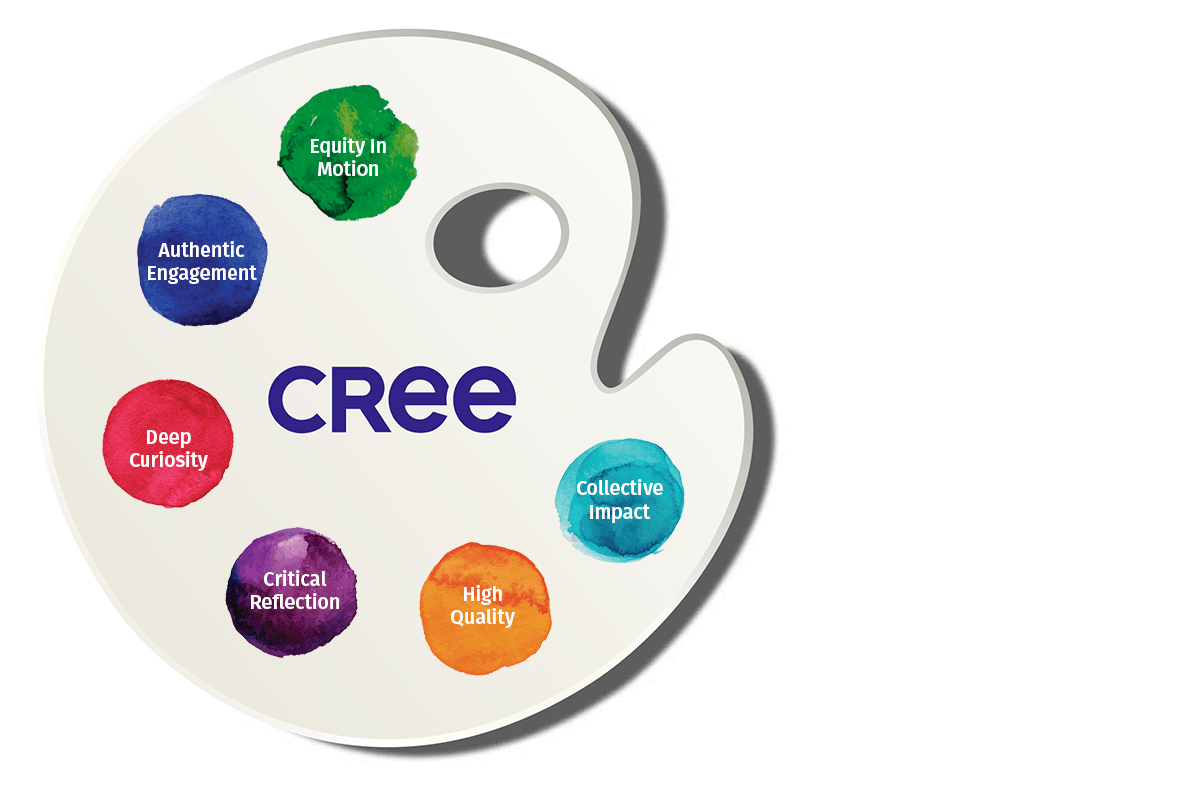Image

eeVAL is an ongoing journey, not a guided tour. The practice of eeVAL requires an openness to revisit assumptions and change directions. Both individuals and organizations can commit to an ongoing journey of learning, unlearning, and relearning.
Critical reflection is an important tool for any ongoing journey of learning. It draws on a spirit of humility, deep curiosity, and accountability. In evaluations, critical reflection supports an ongoing journey for individuals and organizations to explore implicit biases and assumptions about socially constructed differences, such as race, ethnicity, social class, and more.
eeVAL considers multiple points of view to guide evaluation priorities.
In practice, individuals and organizations can celebrate new ideas and lean into growing edges. Individuals must pause to examine how their biases and assumptions affect their choices and decisions in the evaluation processes. Organizations can create opportunities for staff to collectively examine how biases, assumptions, and power dynamics show up in practice, such as what evidence is most valued in support of decisions or what programs receive more or less resources and why. Funders can support ongoing evaluation journeys by contributing resources for communities of practice and other professional development opportunities.
Reflect on Your Practice
- At the individual level, in what ways do you examine how your evaluation decisions are influenced by your implicit biases and assumptions?
- At an organizational level, in what ways does your culture engage with and celebrate new ideas and avoid “right and wrong” thinking?
- In what ways do you consult with program partners and participants on how biases, assumptions, and stereotypes show up in your evaluation process?
- For funders, in what ways do you support continual learning and inclusive resource sharing?
Key Terms
Critical Reflection
Critical Reflection is a process of identifying, questioning, and assessing our deeply-held assumptions - about our knowledge, the way we perceive events and issues, and our beliefs, feelings, and actions. (University of Waterloo)
Implicit Bias
Associations or assumptions (negative or positive) that people unknowingly hold. The theory of implicit bias rests on the idea that much of our social behavior is driven by learned stereotypes that operate automatically—and therefore unconsciously—when we interact with other people. Implicit bias means that racial prejudices (and other areas of diversity) affect individuals’ decisions, as well as their behavior toward people of other races, whether or not they are aware of it. Also known as unconscious or hidden bias (Saats, 2013, cited in Racial Equity Tools, 2020).
Explore the Other Values


Authentic Engagement
Advance collaboration, inclusivity, capacity building, and civic action.

Deep Curiosity
Use multiple perspectives and methods that are responsive to local cultures, histories, and traditions.

Quality Redefined
Balance the technical mechanics with the socio-political and ethical considerations that impact individuals and communities.

Shared Learning
Allow for learning to be shared beyond organizations and networks to convey the multitude of evaluation processes, stories, and impacts, and to benefit the field broadly.
